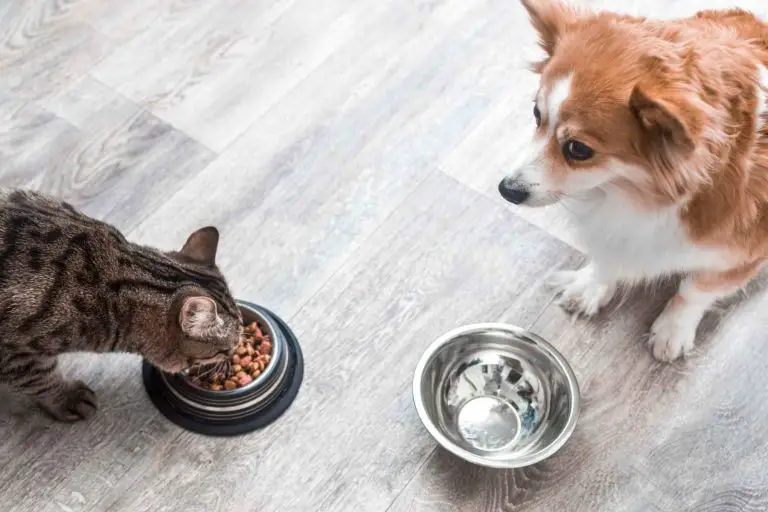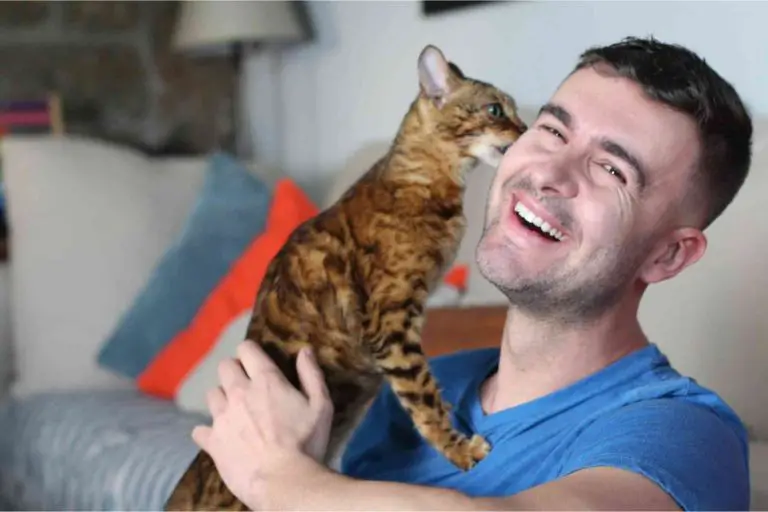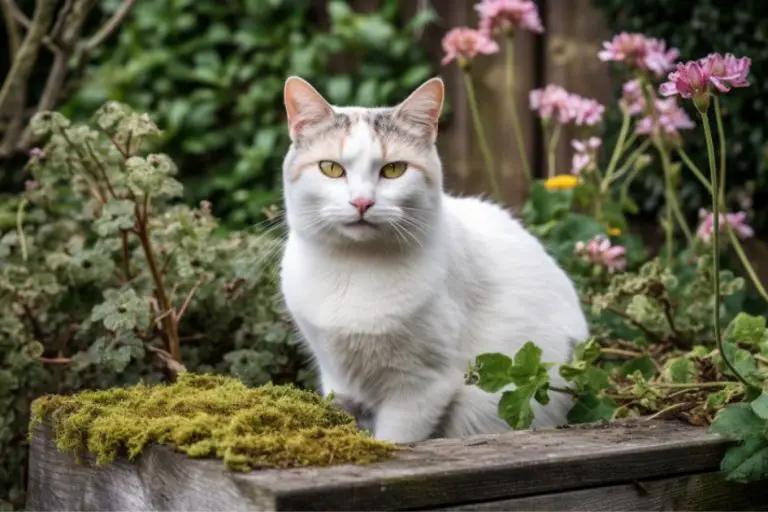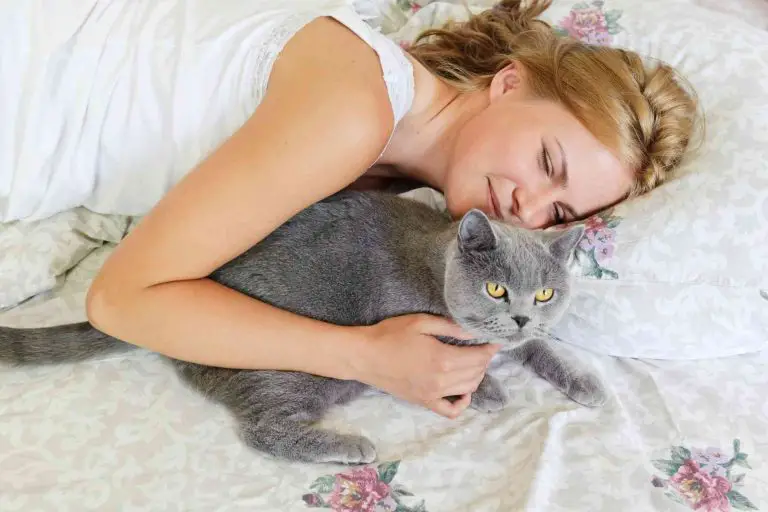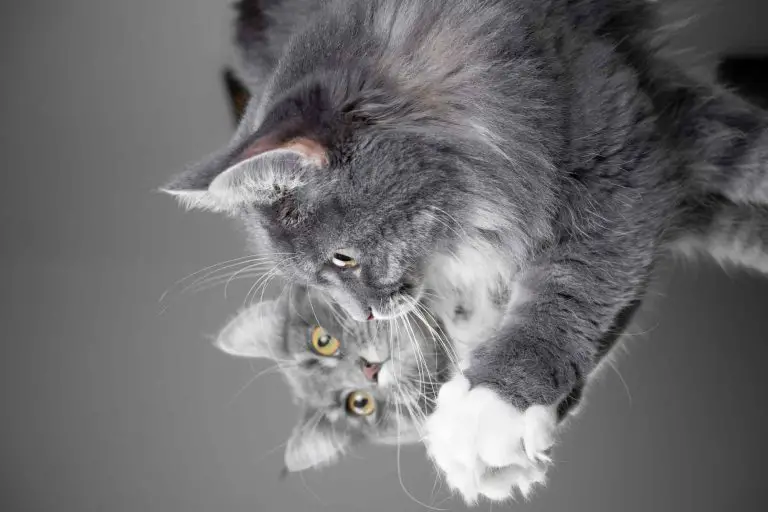Why Are Cats So Soft?
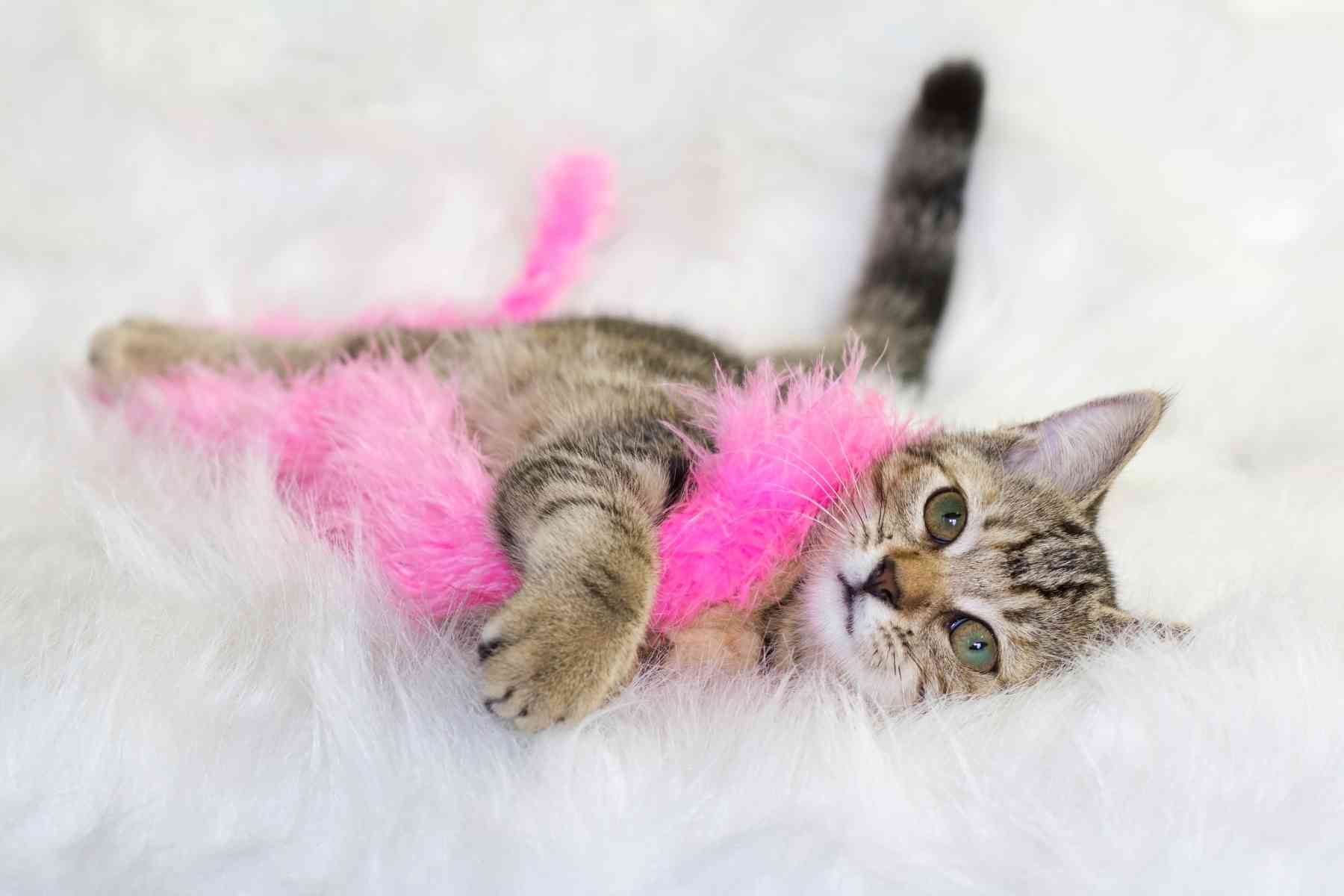
The softness of a cat’s fur depends on its breed, type of fur, nutrition, age, genetics, and grooming habits.
If you can’t stop petting your cat’s silky, soft fur we will help you understand why! This article will cover all the reasons why your cat’s fur is so soft.
Does Your Cats Double Coat Make Their Fur Soft?
The main reason that your cat is so soft is that most cats have two layers of fluffy fur. The undercoat is short, fluffy, and soft. This coat is intended to keep cats warm during the winter.
Their outer coat is much coarser than the undercoat. It’s intended to protect cats from the sun and repel water. It also is where you can find most cats’ markings and pigmentation.
Do Cats Have a Third Coat?
Cats actually have a third coat of hair in between their undercoat and outercoat called awn hair. This helps add another layer of protection to help keep the cat’s undercoat soft and dry.
Additionally, the awn hair helps the cat with thermoregulation by manipulating hair follicles to adjust to the temperature.
Are Cats Softer During the Winter Months?
Cats’ undercoats are at their thickest during the winter months making their fur much softer. Alternatively, in the summer cats shed their undercoat and tend to have less soft fur.
Does a Cats Genetics and Breed Effect the Softness of its Fur?
Some cats are just softer than others because of their genetics. Some breeds have a thicker undercoat because they used to live in colder climates, while others may be prone to courser hair.
Ragdoll cats naturally have extremely fluffy fur. On the other hand, American Wirehair cats tend to have a wiry coat.
A cat’s lineage or parents can also play into its fur’s softness. If you are concerned about whether or not your cat should have soft fur, you can run a DNA test to determine if it’s a purebred or the type of breeds that are in its ancestry.
Which Cat Breeds Have the Softest Fur?
Of course, there is a lot of debate around this topic, but there are some cat breeds that are known for their softness. These include:
- Ragdolls
- Maine Coons
- Siamese
- Norwegian Forest
- Persians
Does a Cats Grooming Effect the Softness of Its Fur?
If your cat has unusually soft fur, then chances are you have a very clean cat. On average cats spend 10% to 20% of their time cleaning themselves.
Cats groom themselves to remove knots, clean dirt, and distribute oils throughout their fur. If your cat looks a little ragged, it’s probably not spending enough time grooming.
Can Cats over-groom Themselves?
Some cats can actually over-groom themselves. This usually only happens under extreme-duress, but if you notice your cat balding or patches of thin spots, this may be why.
Can You Groom Your Cat?
If it looks like your cat isn’t keeping up with grooming themselves or you’d like your cat’s fur to be a little softer you can help with the grooming process.
All you need is a brush and a willing cat. Some cats thoroughly enjoy being brushed, while others run away at the site of one. Daily brushing can help pick up dead hair and distribute oils.
Keep in mind that some cats are just predisposed to not soft fur. No amount of grooming will correct this.
Does Nutrition Effect the How Soft Your Cats Fur Is?
While under-grooming can make a cat’s fur coarse and knotty, so can poor nutrition. If your cat’s fur is dry and brittle with a lot of hair breaking off, it’s usually an impact of poor nutrition.
Make sure to feed your cat a proper diet. You would be amazed at how shiny and soft your cat’s fur can get.
Does Age Effect the Softness of Cats Fur?
As cats get older, their fur tends to get coarser. This is because they have less energy to groom themselves and produce less oil.
Do Indoor Cats Have Softer Fur Than Outdoor Cats?
Depending on breed and genetics, indoor cats can have softer fur than outdoor cats. This is simply because indoor cats aren’t exposing their fur to the elements.
However, if outdoor cats come into the house often and clean themselves regularly, then the softness of their fur can compare to that of indoor cats.
While a lot of things could cause the difference, some influencing factors include:
- Exposure to the elements (dust, rain, sun, etc.)
- Proper nutrition
- Proper care
Does a Cat’s Mood Effect the Softness of Their Fur?
Mood isn’t directly connected to the softness of a cat’s fur, but it can be a factor. If a cat is anxious or depressed it can either neglect grooming or start to over-groom.
If your cat is depressed it will most likely become lethargic and too lazy to groom itself. Consider if there are factors affecting your cat’s mood and try to correct these to see if it begins grooming again.
If a cat is extremely anxious, it may develop psychogenic alopecia. This is when a cat pulls out too much of its hair and it starts balding or having thinning spots.
Does Cats Soft Fur Help Them Get Through Tight Spaces?
You may notice that your cats seem to be able to slip through even the smallest of gaps. This is in part due to their soft fur.
Soft fur is less likely to snag and creates less friction. A clean, soft coat helps them avoid predators by using small gaps as an escape route.
Why Is the Fur Behind My Cats Ears So Soft?
You may have noticed that the fur behind your cat’s ears is extremely soft. While the actual biological reason for this is still in question, there are a few theories.
The first suggests that short hair is needed near the ears in order to allow them to mobilize their ears. Short hair often equals soft hair.
Another theory is that the hair is short to keep it from impeding a cat’s hearing.
The final theory is that your cat produces more oil near its ears to help prevent ear infections. Increased oil production would mean softer hair. Whatever the reason, behind your cat’s ears, is often the softest place to pet them!
Do Cats Have Softer Fur than Dogs?
While it certainly depends on the breed type of both animals, cats often will have softer fur than dogs.
Dogs don’t have the middle layer of awn hair that cats have to protect their undercoat. In fact, some dogs don’t have undercoats at all.
Since the undercoat is the softest part of the cat, having a short or exposed undercoat or none at all would limit the softness of a dog’s fur.
Should I Be Worried If My Cat Doesn’t Have Soft Fur?
Some cats just have softer furs than others. You shouldn’t be concerned if your cat was born without soft hair or has never typically had soft hair.
But if you notice that your cat’s fur’s softness is deteriorating, that may be the indicator of some medical issue, and you should take them to a vet.

